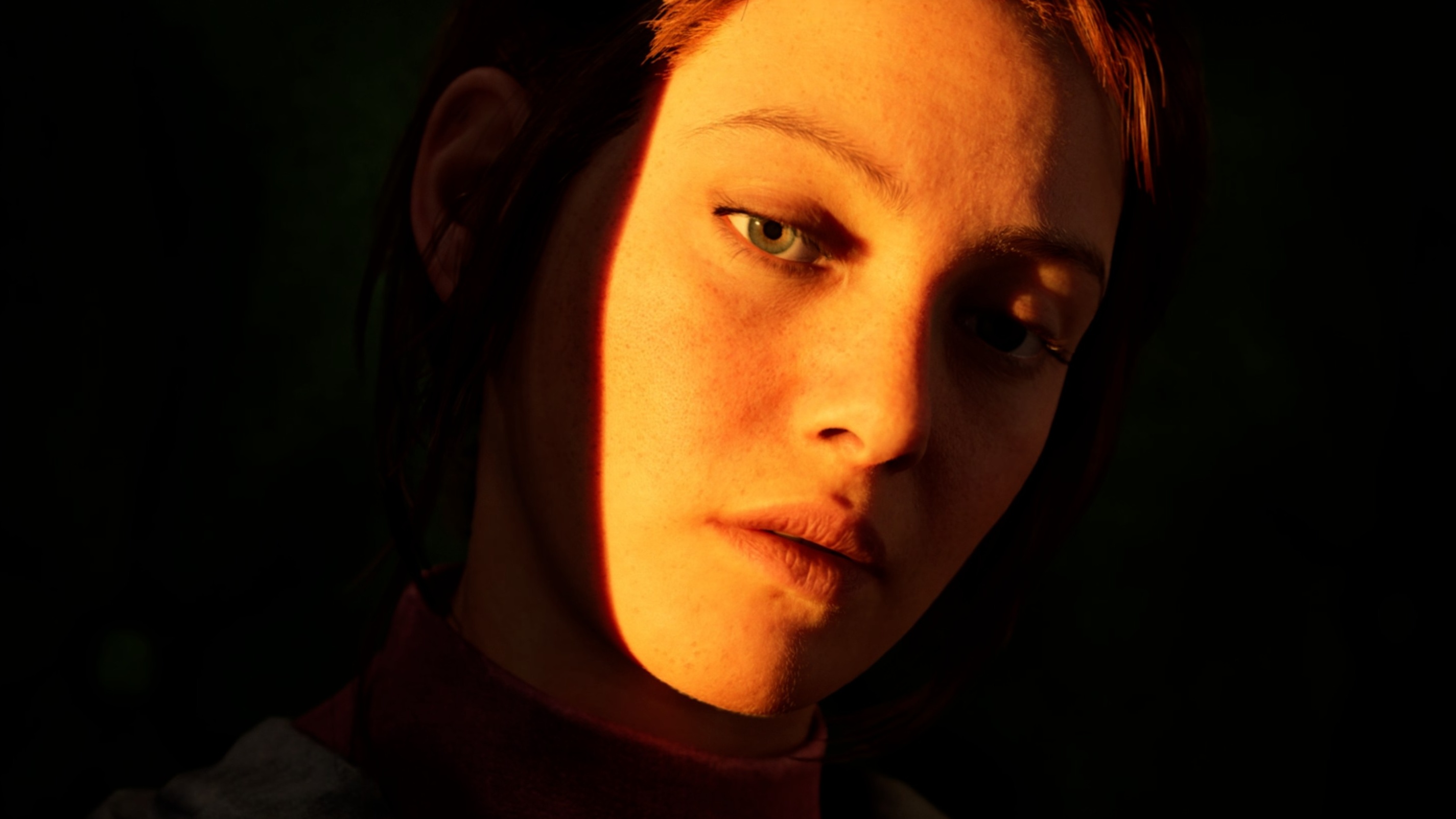How Kingdom Come: Deliverance handles choice differently from other RPGs
And why your insignificance to its wider world is a good thing.
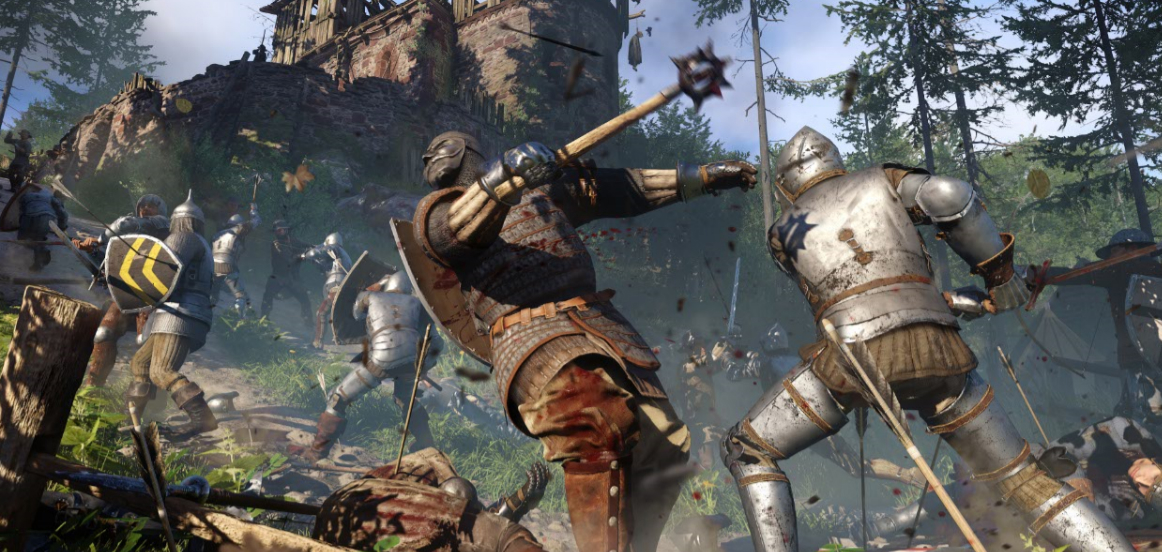
Choice is one of the most coveted yet elusive aspects of modern game design—no matter how contrived its inclusion. Player agency—or, at the very least, the illusion of player agency—is often reduced to clearly framed, story-defining moments where the player's morals are frequently called into question. Warhorse Studios, developer of first-person historical RPG Kingdom Come: Deliverance, is approaching this design challenge from a different angle.
It works under the premise that within a 16 km² patch of sparsely populated 15th century Central European villages, countrysides and feudal keeps, your actions will inevitably have greater knock-on effects than they would in two cities on opposite sides of your typical open-world RPG continent. The compact map includes around 80 quests in total. By sacrificing the RPG sprawl focuses on offering a world where no action—whether it’s a casual haggle with a trader, a scrap with a pub patron, or sparing the lives of the men responsible for your father’s death—is without consequence.
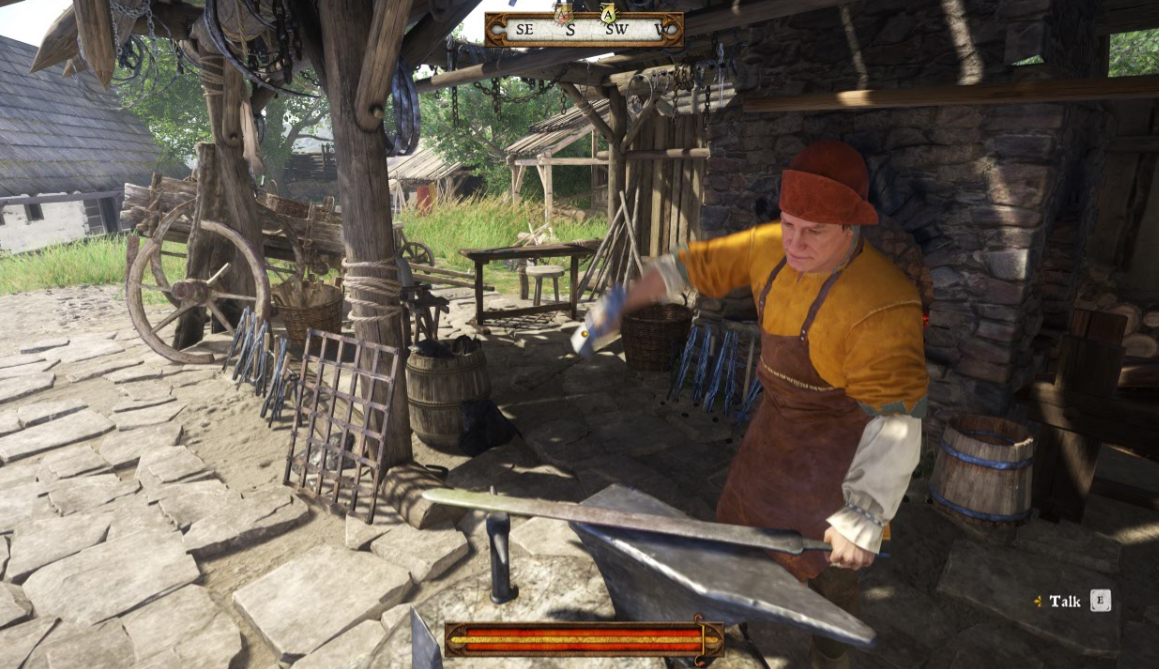
In a hands-off preview, I was guided through the opening quest watching protagonist Henry (a pudding-faced derivative of Game of Thrones’ Ramsay Bolton) running errands for his blacksmith father. This involved picking up coal, grabbing him beers, and retrieving debts from the local tough Kunesh, among other things. At first these duties appear to be simple fetch quests, but rather than teaching you how to fight (not a requisite skill for a blacksmith’s boy at this point), they serve to outline the game’s systems.
Dilly-dally while delivering dad his cold beer, for example, and it’ll be tepid by the time he gets it—making him a little less fond of you in turn (adhering to the medieval Bohemian precept ‘three warm beers and you’re out in the pig pen for the night’). It’s a trivial task, but it illustrates the so-called ‘rotting’ mechanics in Kingdom Come: beer gets warm, food goes off, and quest leads disappear (or get murdered, as the case often may be). Events in the persistent world carrying on irrespective of your presence. Crucially, you need to adapt to this ongoing world before you can begin influencing it.
The idea that the world doesn’t revolve around you is surprisingly rare in RPGs, where most quests are quite literally waiting for you to undertake them. In this respect, Kingdom Come veers more towards Warren Spector’s One City Block game design philosophy, which eschews scope for a densely-packed world of emergent, consequential interactions. In Kingdom Come you might beat up a pub patron, only for him to go elsewhere for his next evening tipple; or you may commit murder after which the local sheriff will investigate the body, leaving his office free to break into and so on.
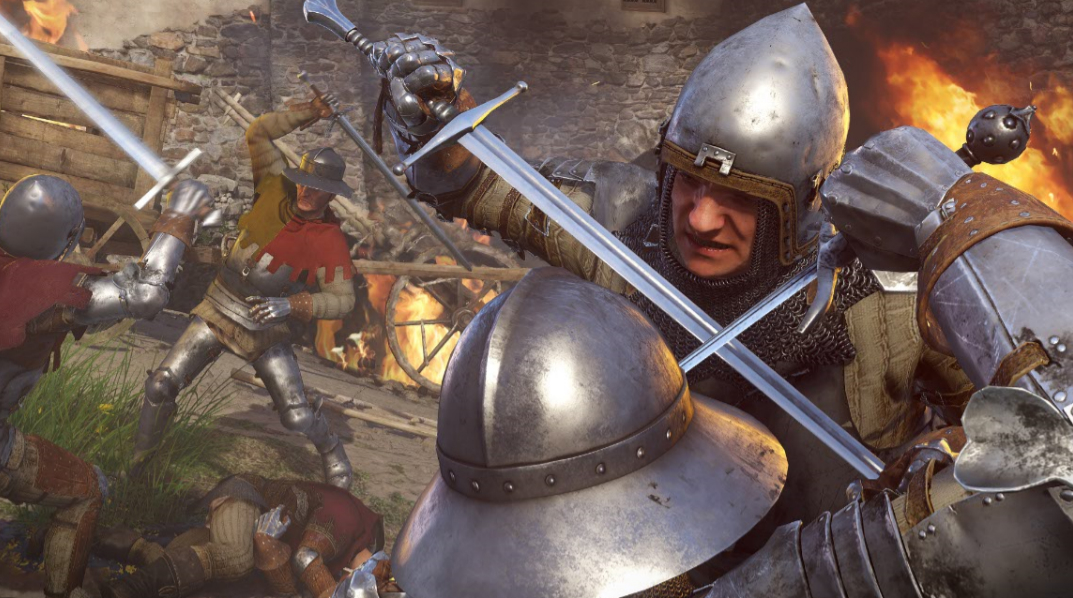
One instance of branching narrative that stands to mind involved collecting the aforementioned debt from Kunesh. There’s a good chance he’ll beat you up should you choose to approach him directly and while you could flat-out murder him when no one’s looking, this will lock you off from a specific scenario with him later in the game.
Alternatively, you may bump into a trio of pranksters who plan to pelt a disgruntled local's house with dung. Tag along and you'll wind up siding with them in a brawl with law enforcement—payment for which will see them teaching you how to pick locks. From there you're free to case Kunesh's house, and rob the whole place blind if you so choose—a rite of passage for any discerning RPG player. Most interestingly, this event plays out regardless of whether you join in or not, meaning you have a limited window of opportunity within which to engage.
Keep up to date with the most important stories and the best deals, as picked by the PC Gamer team.
It's a bold vision and all these branching opportunities and tie-ins to later plot events stem from the seemingly trivial opening quest. It’s impressive stuff, though maintaining such interconnectedness throughout the remaining 79 quests is still at this stage ambitious. It’s nothing new for RPGs to talk about how your choices matter, but here the flexible quest structure has the potential to deliver on those promises. Kingdom Come’s success will largely depend on how successfully this system is executed.
Imbuing your decision-making with gravitas is the unique save system, whereby Henry has a swig of Slivovica (a strong plum brandy that I can confirm mixes well with a cup of tea) each time you save manually. Overdo it, and Henry’s stats will take a hit as the 70% abv fluid atrophies his body and senses. A bit heavy-handed, maybe, but a signal of intent nonetheless that Warhorse wants you to think twice before making the big decisions rather than blithely approaching each one in a trial-and-error manner.
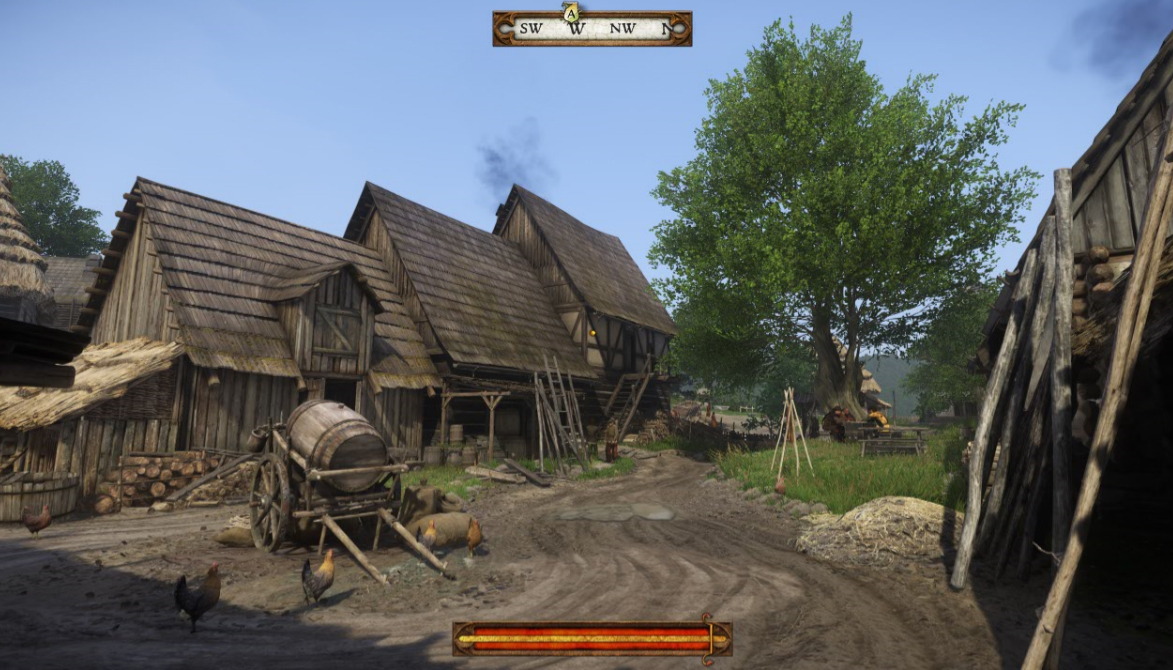
Kingdom Come is a game with big ambitions, then, though it’s worth mentioning that some of its constituent parts still seem a little feudal. It looks as much a work-in-progress in the latest preview as it did when I last played it back in March (albeit now with added polearms). Little has changed in the way of animations and writing, which both remain rudimentary (though the latter isn’t helped by the placeholder voice-acting), and the much-touted combat system is yet to overcome that inherent first-person perspective problem of feeling synthetic and hitboxy.
That, along with the uncanny way combatants moonwalk across the ground as they strafe around you, gives the game moments of looking dated and a bit too Oblivion-esque for this day and age (an impression bolstered by the decidedly Obliviony UI). With no release date set, there’s plenty of time to fix the niggles. That said, a few aesthetic similarities to Bethesda's enduring RPGs shouldn’t overshadow this one's many differences. Much like its opening quest, Kingdom Come may seem familiar, but its ambitious underlying systems reveal it’s anything but.
Robert is a freelance writer and chronic game tinkerer who spends many hours modding games then not playing them, and hiding behind doors with a shotgun in Hunt: Showdown. Wishes to spend his dying moments on Earth scrolling through his games library on a TV-friendly frontend that unifies all PC game launchers.

